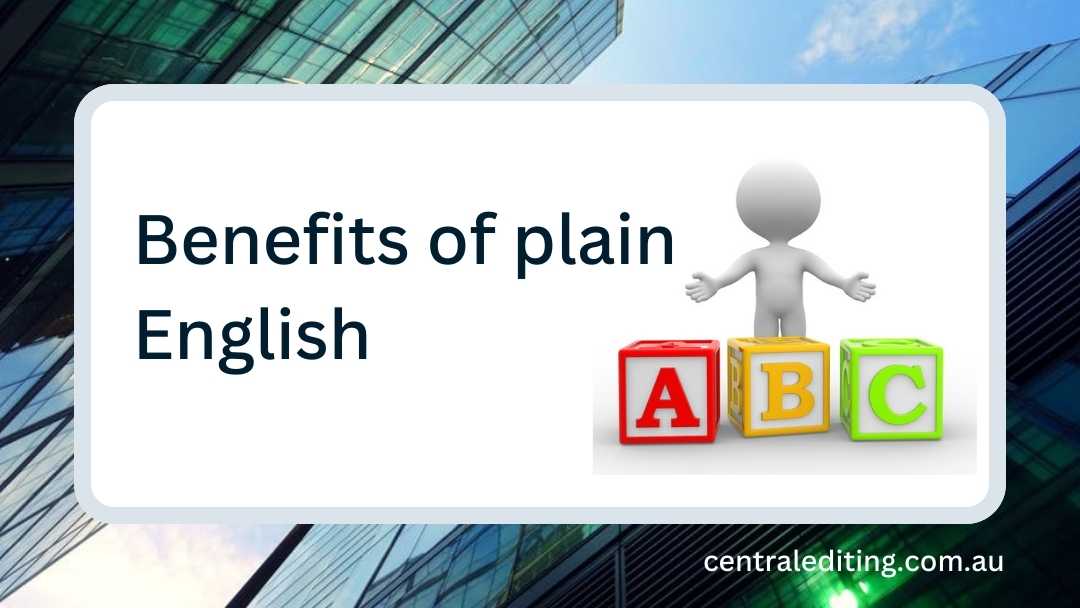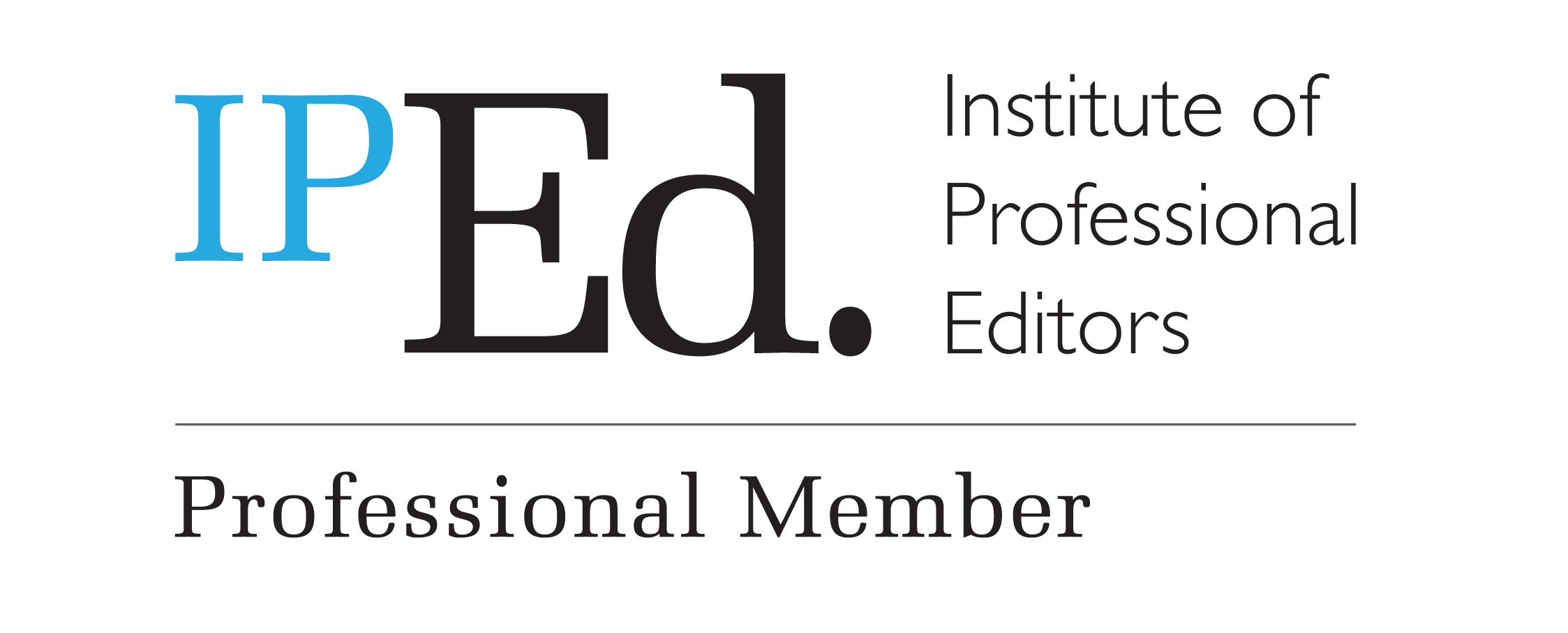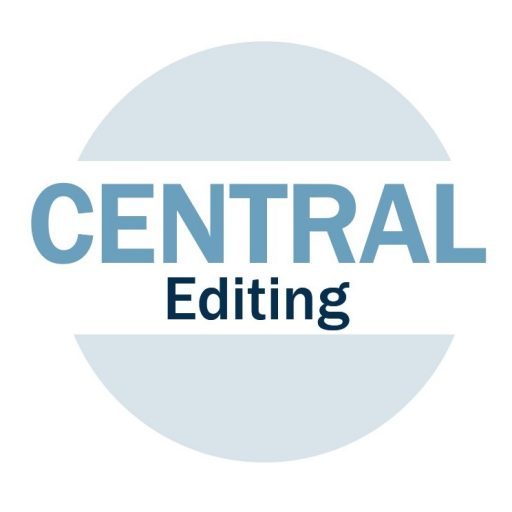The benefits of plain English writing

Rewriting in plain English can improve the efficiency and effectiveness of your organisation’s communications, and may also deliver savings in resource and production costs.
This article covers:
What is plain English writing?
Plain English writing (or plain language writing) is text written so that it conveys the intended meaning in language that is easy to understand. It does not involve (as some might think) ‘dumbing down’ of the language but instead focuses on clear communication, and so results in crisp, clear, concise sentences with no ambiguity.
The plain English writing style is beneficial for any document produced by a government or business – for any purpose – whether the intended audience is the general public, stakeholders, academics, government officials or ministers. Underlying the plain language approach is the recognition that the reader’s need (for understanding) is the critical element of any piece of communication – certainly more important than the author’s desire to impress or embellish through complicated sentence structures and complex word choices. These linguistic flourishes have their place in creative writing but not in communications between organisations and their customers or stakeholders, where the goal is effective transmission of a message.
The single biggest problem in communication is the illusion that it has taken place. George Bernard Shaw
The shift towards plain English
Governments around the world recognise the value of plain language communication. In 2010, the U.S. Government passed a law, the Plain Writing Act, that requires U.S. federal agencies to use plain language in their communications with the public. The guidelines for this law explain that writing clearly and getting straight to the point, without unnecessary words or jargon, will get the message across quickly and increase the likelihood of understanding.
The need for plain language is also recognised by lawyers, solicitors, barristers and attorneys around the world. Members of the legal profession in more than 50 countries have joined Clarity, an international organisation committed to promoting plain legal language.
Think like a wise man but communicate in the language of the people.
William Butler Yeats
Principles of plain English
Keeping in mind the goal of clear communication it makes sense to employ the KISS principle. There are various explanations for the origins of this acronym including: ‘Keep it short or simple’; ‘Keep it simple and straightforward’; ‘Keep it simple, stupid’ and some that are even less polite, but the underlying idea is consistent. When writing in plain English the KISS principle comes down to thinking about: what you say (focus) and how you say it (tone).
1. Focus – what you say
Focus on what needs to be said and say it clearly and logically in short sentences. Present important facts or instructions first in each section and paragraph. Include other necessary details. Leave out non-essential information. Use transition words to indicate connections and sequences (so, also, in addition, first, for example, similarly…).
Example:
✗ The XYZ department requires that you provide the information requested by completing the attached form at your earliest convenience. (19 words)
✓ Please complete the form and return it to us. (9 words)
2. Tone – how you say it
Use language that is conversational and friendly rather than bureaucratic, legalistic, academic or full of jargon. Choose everyday words that are concrete rather than abstract, and strong verbs in the active rather than passive voice. Avoid buzzwords, jargon and weasel words.
Example:
✗ Your communication has been received by the department. (8 words)
✓ We have received your email. (5 words)
Benefits of rewriting in plain English
The primary benefit of using plain English is the improved efficiency in communicating with your audience through:
– eliminating or reducing confusion and misunderstandings
– speed (and clarity) in getting the message through
– enhancing the image, ‘personality’ and reputation of your organisation as friendly rather than bureaucratic, easy-to-deal-with rather than difficult and demanding.
And there are other savings that can be measured more tangibly. A plain English message almost always takes fewer words to get across, sometimes only half as many words. Fewer words require fewer pages, resulting in real savings in printing, distribution and storage costs for your organisation.
Shorter documents also mean a time saving and, as the saying goes, ‘time is money’. Documents in plain English generally take less time to read and understand, which can lead to efficiencies in speed of decision-making and follow-up actions.
Central Editing approach to plain English writing
Central Editing adopts the position of reader advocate when reviewing and rewriting text for our clients. Even though the meaning of a paragraph/page/report may seem to be perfectly clear, we consider whether the message could be further clarified, whether the language could be improved or simplified, and whether the meaning of any words, phrases or sentences could be ambiguous. We consider the key purpose of the document and the best language to express this to the intended audience in the simplest way.
The reader’s need (for understanding) is the critical element of any piece of communication.
Plain English writing tips
Minimise jargon and buzzwords such as
cover all the bases
bricks & mortar
level playing field
heads-up
drill down
double down
on the back of
synergy
low-hanging fruit
ducks in a row
quantum leap
on the same page
salient
optimise
facilitate
incentivise
leverage
impact (as a verb)
Eliminate meaningless qualifiers such as
fundamental basis
a range of different options
strictly prohibited
totally overwhelmed
returning again
cease to operate
And these words: very, basically, really, currently, relatively, effectively.
Use everyday words
Replace ‘anticipate’ with ‘expect’
commencement → start
demonstrate → show
endeavour → try
utilise → use
notwithstanding → despite
additional → more/extra
ascertain → learn/find out
Beware tautology and redundant words (see what I did there!)
basic essentials
end result
free gift
new initiative
past history
personal opinion
various different
goals and objectives
needs and requirements
issues and problems
Simplify phrases
Replace ‘take on board’ with ‘agree’
in this day and age → now
in the near future → soon
at this point in time → now
due to the fact that → because
has the capability → can
for the purpose of → for
in order to → to
with regards to → about
on a daily basis → daily)
is likely to → may
in consideration of the fact that → because
Avoid cliches such as
all things being equal
last but not least
second to none
under the radar
point of no return
par for the course
tip of the iceberg
Use simple verb forms
extend an invitation → invite
give consideration to → consider
arrive at a conclusion → conclude
provide assistance to → assist
is able to → can
Recommended resources for more information about plain English and clear writing
Books
Clear & concise: Become a better business writer by S. McKerihan
Writing in plain English by R. Eagleson
How to write plain English by R. Flesh
Effective writing: Plain English at work by E. Murphy & S. Snell
The professional writing guide by R. Petelin & M. Durham
The Oxford Guide to plain English by M. Cutts
The Cambridge guide to Australian English usage by P. Peters
Organisations
Plain Language Association International (PLAIN)
TED talks
Demand to understand: How plain language makes life simpler | Deborah Bosley | TEDxCharlotte
Let’s simplify legal jargon! | Alan Siegel | TED2010
The right to understand| Sandra Fisher-Martins | TEDxO’Porto
Denise Holden has consistently improved the quality of our publications and reports through her attention to detail and ability to rewrite in plain English without compromising meaning.

Have a question or want to discuss your project?



